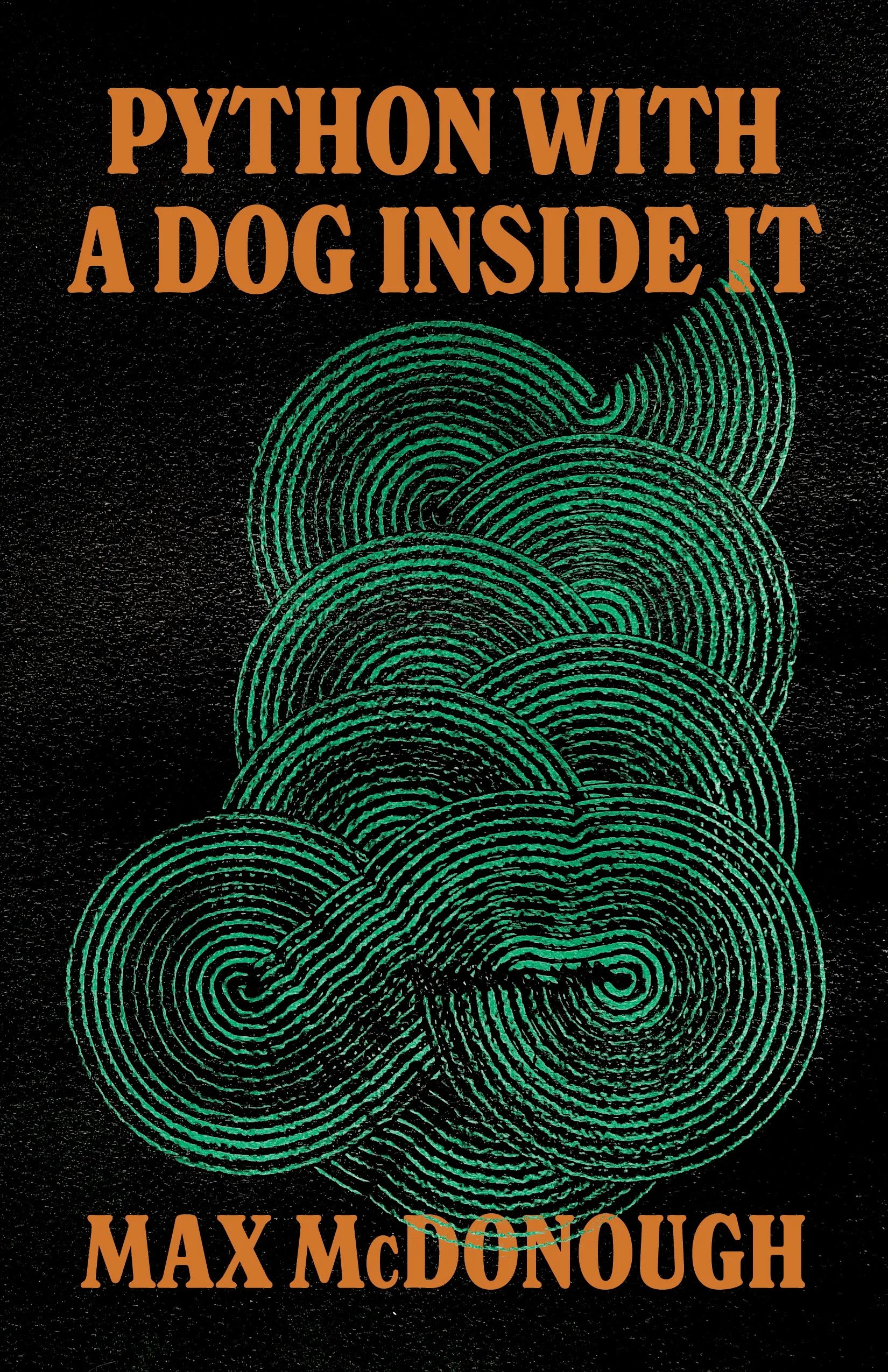
Hi! I’m Max.
Get your copy.
Set on the marshlands of working-class southern New Jersey, Python with a Dog Inside It traces the story of two gay brothers as they endeavor to survive their mother’s erratic and escalating violence. They retreat to the privacy of suburban woods and swamps, a world of their own glimmering with ruin and possibility: abandoned furniture, mud-caked jewelry, a time machine. The poems in this collection occupy, as Judith Herman describes it, the space between “the will to deny horrible events and the will to proclaim them aloud.” Ultimately, Python with a Dog Inside It is not only a story of survival, but one of redemption; by proclaiming the events of a particular, harrowing childhood, McDonough invents a future beyond it, one marked by radical openness, hope's flame brighter for the darkness.
Praise for Python with a Dog Inside It
This collection gets into your bones and stays. Rooted in marsh and mud, these poems keen with a somber beauty. Here is an unflinching family portrait, a tender collage of boyhood, and ultimately an ode to what home makes of us, all tuned to the particular frequency of McDonough’s potent lyric. This is a gifted young poet and a beautiful debut.
– Safiya Sinclair, author of How to Say Babylon, winner of the National Book Critics Circle Award
The poems in Python with a Dog Inside It pulse with barbed beauty and fraught intimacy. By turns earthy and tender, brutal and unflinching, McDonough illuminates the hidden truths of both “suburban woods” and domestic home like a flashlight throwing darkness into relief. Tracing the legacy of family and the ghosts of what we witness, these poems ask, “does violence live in the genes, / their story telling itself / in the dormant voice / of a seed”? They will make you confront what latent history swirls in your own veins, daring to be repeated, rebuked, remade.
– Alina Grabowski, author of Women and Children First
Max McDonough’s Python with a Dog Inside It is a book whose uncanny juxtapositions identify submerged moments of family and individual distress, as well as equally arresting disclosures of love. Its images regularly arrive in jump-cuts that reveal and transform, more than any sequential narrative could, emotional territories not available to usual ways of navigating. McDonough’s investigations take the reader inside a sense of location that’s precarious and charged: “…shadows of moth-flutter shrinking as night pries open its beak. The harsh links// between transmission towers. The sleeved white fire of black cables running a distance/ farther than any child could try.” Such precise articulations of anxious need— through sensory image, sound, rhythm and syntax— are utterly absorbing, as the scenes move in and out of self, forward and backward in time, with the poems’ own logic of echoing patterns and a voice that makes a whole out of the shattering, glittering pieces of a particular life. Such clarity of vision is how the best of poetry makes our own lives feel clearer too.
— Debra Nystrom, author of Night Sky Frequencies: New and Selected Poems
I’ve been waiting for a book from Max McDonough, and I’m so happy it’s finally here. McDonough writes with astonishing precision, toggling lyric and narrative desires with exquisite poetic execution. Python with a Dog Inside It is a brutal and beautiful book that captures the fraught landscapes of familial trauma with striking diction and unforgettable imagery. The psychological impulse in this stunning collection ricochets and pings inside the violent transference from the personal to pastoral backdrops like the bloodworms breeding in “shoal water / slick with dimly shimmering husks, reproductive confetti / that wallowed up, smacked of semen on my tongue like hot syrup in the dark, familiar, alien.” McDonough writes poems that needle, glimmer, and thrash. This stunning debut left me in awe, enthralled by a singular voice that bears witness to terror with tremendous tenderness, salvaging the ache with survival.
– Tiana Clark, author of I Can’t Talk About the Trees Without the Blood, winner of the Kate Tufts Discovery Award
Cover art: Luca Brandi
Cover design: Zoe Norvell

